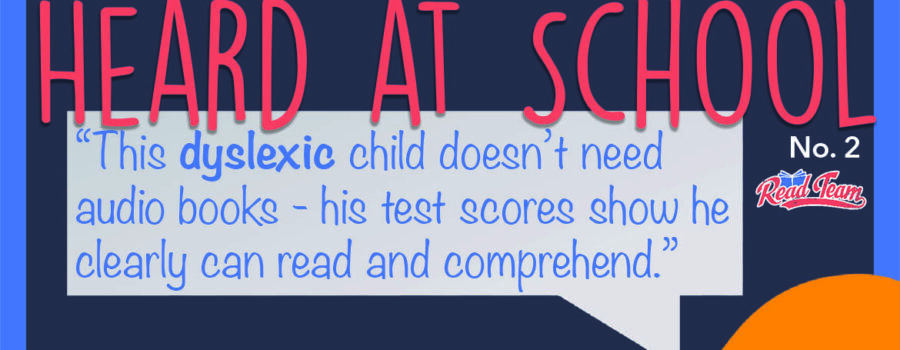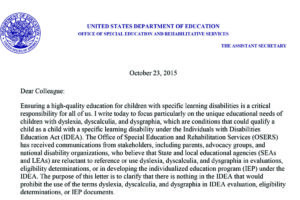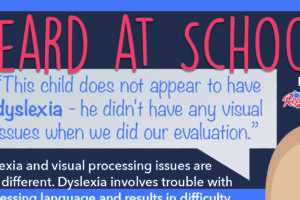The statement on this graphic came amid commentary that because a child did not demonstrate comprehension issues on standardized assessment tests, he must no longer have decoding issues and therefore audio books were not necessary.
I know a lot of parents who will say comprehension for their child isn’t an issue – but the effort, amount of time and stamina needed to read a lot of text is.
Dyslexia is lifelong. Dyslexic students – even those successfully remediated or recipients of early intervention – read differently than non-affected readers due to the areas of the brain in which reading and language are processed, and many find text-to-speech tools a beneficial accommodation.
A dyslexic reader is often using more cognitive energy because of a continued need for decoding – unlike readers with greater automaticity and fluency. Even a very skilled reader may read in a slow, very labored manner when reading unfamiliar texts. Audio books give readers the opportunity to spend more energy on learning the content and less on decoding it.
Whether a student uses it or needs it all the time does not mean they shouldn’t have access to the accommodation when they do need it. My son is one of those kids who is hesitant to embrace his accommodations (I know there are many parents who share that story), but audio books have proven helpful to him repeatedly and he knows it.
And, PS, if anyone tells you listening to audio books is unfair – let them know it takes at least two times longer to listen to a book than it does for an average reader to read it as text (so where’s the advantage in that?). Oh, and if you can learn by listening to a lecture, how is that any different from learning by listening to a book?







Leave a Reply
Your email is safe with us.